
A detailed summary of handling fees across deposit return jurisdictions worldwide, offering valuable insights into how different systems set and manage these fees.
Reloop News

A detailed summary of handling fees across deposit return jurisdictions worldwide, offering valuable insights into how different systems set and manage these fees.

Overview of new digital elements that are included within the concept of digital deposit return systems (DDRS).
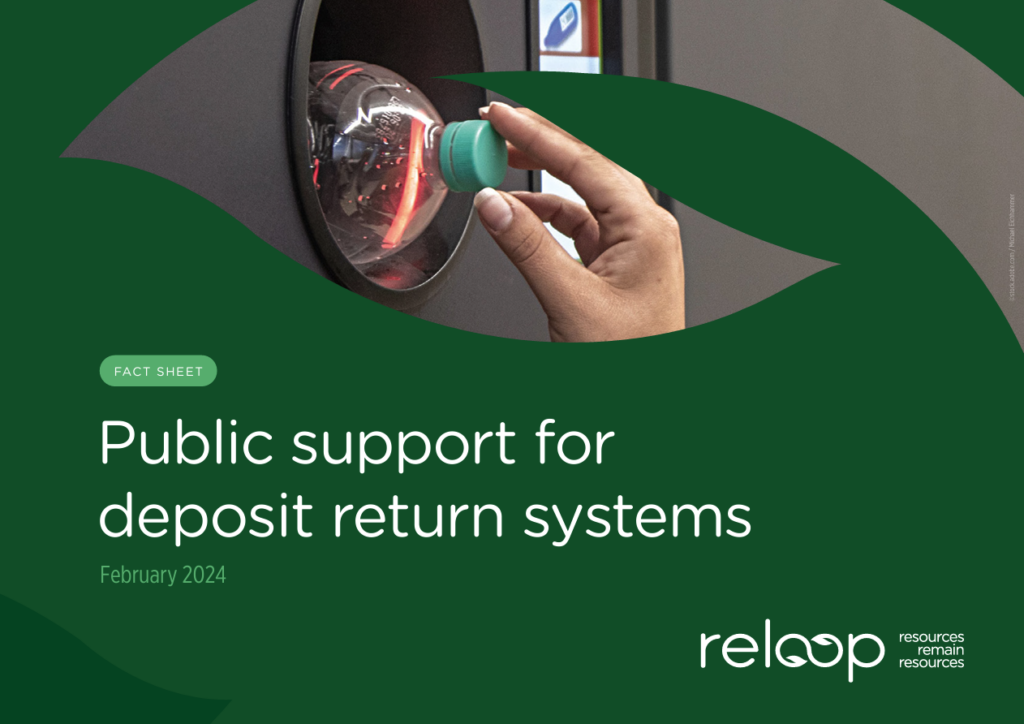
Compilation of results from over 180 public opinion polls on public support for deposit systems gathered on a global scale.
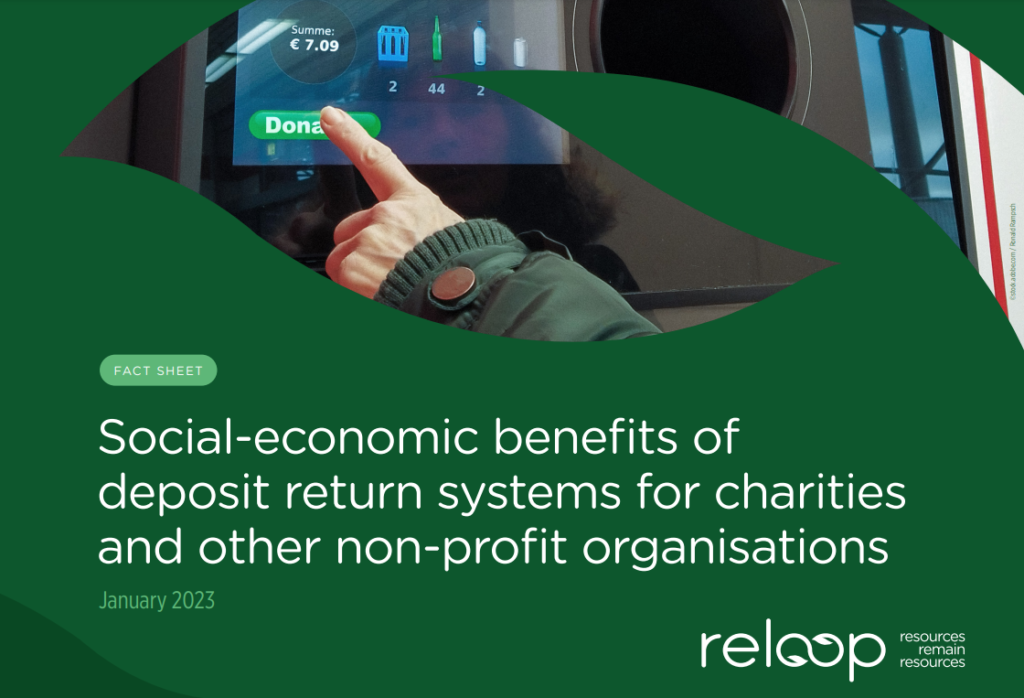
Short fact sheet going over how deposit return has potential to generate meaningful social-economic outcomes.

Countries, states, and provinces that have implemented deposit return systems (DRS) consistently achieve higher collection rates for drinks containers than those that rely solely on municipal kerbside collection programmes.
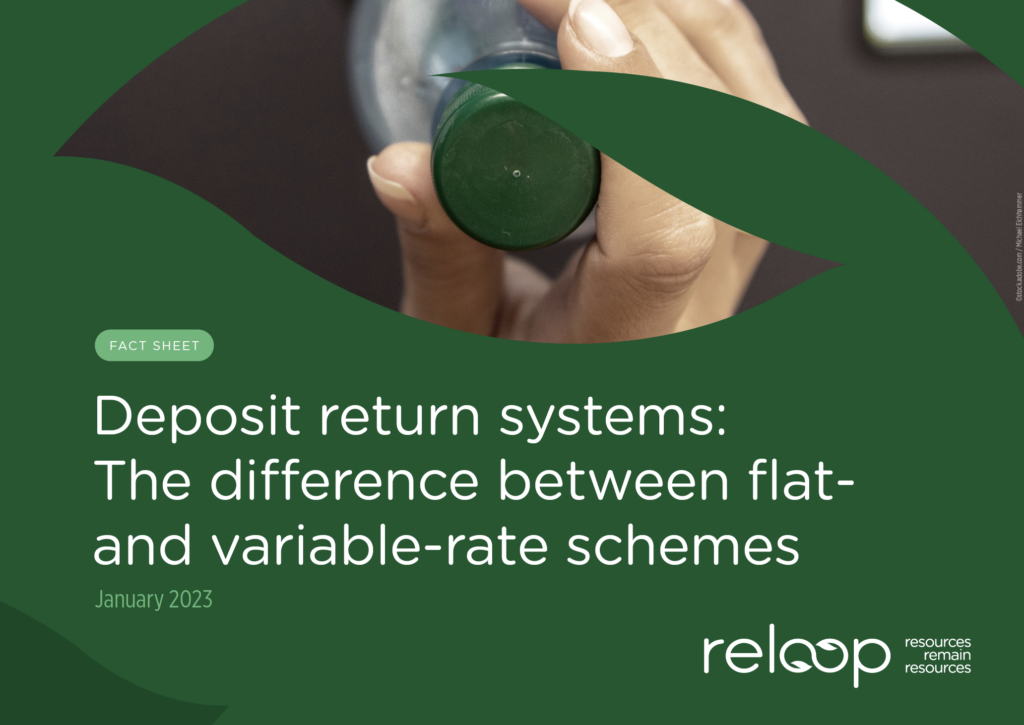
When it comes to the design of a new DRS, one of the key topics of debate is whether the system should adopt a flat-rate (sometimes called ‘fixed-rate) or variable deposit fee.
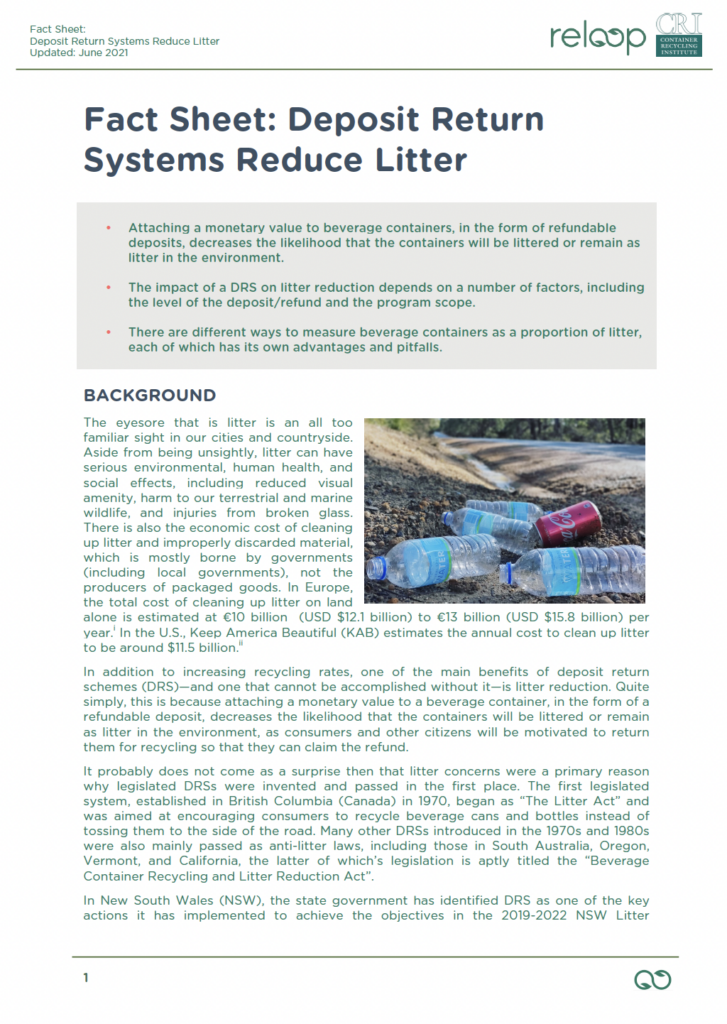
In addition to increasing recycling rates, one of the main benefits of deposit return schemes (DRS)—and one that cannot be accomplished without it—is litter reduction.
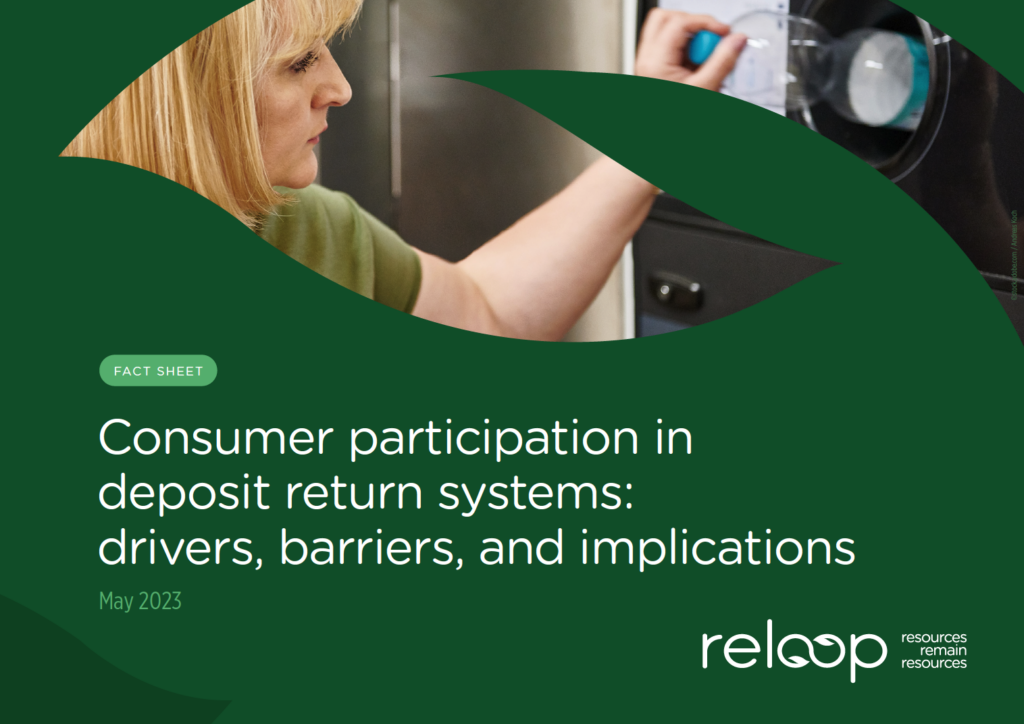
Fact sheet based on a thorough review of available consumer participation data from consumer surveys related to existing DRS.
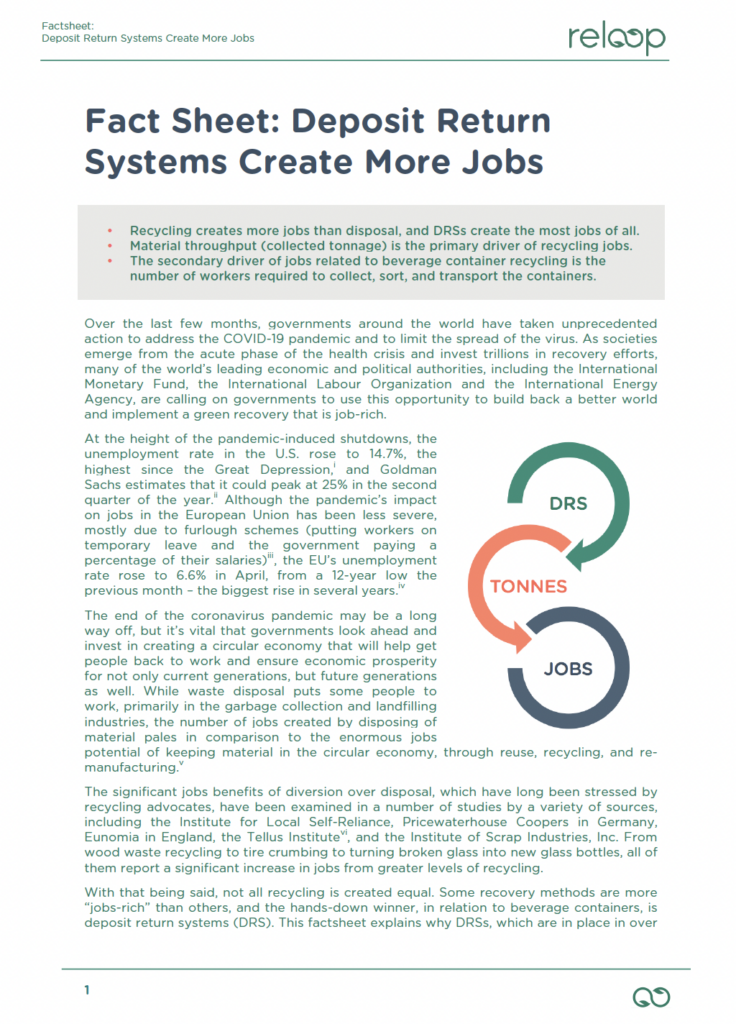
The research cited in this document provides a compelling case for increasing beverage container recovery rates through DRS.